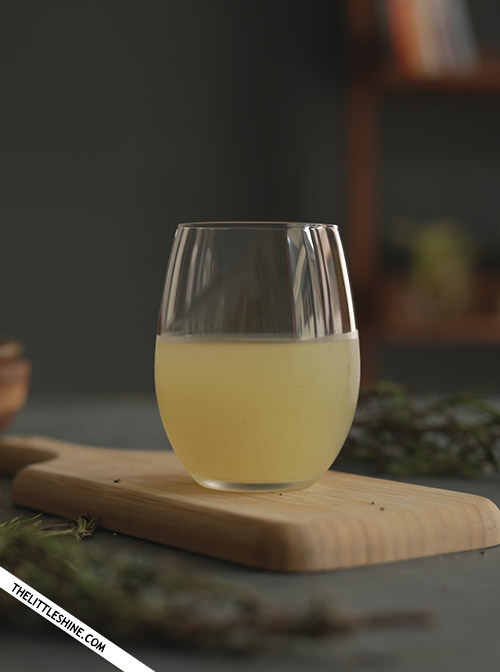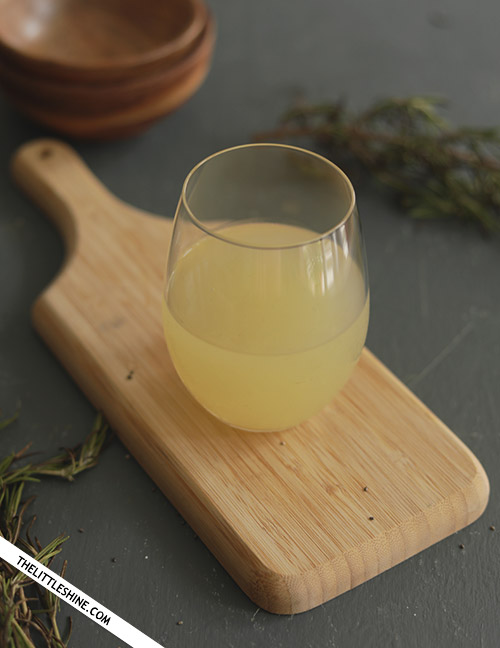Aloe vera is an evergreen perennial plant of the genus Aloe. This species is commonly used for various consumer products including beverages, skin lotions, cosmetics, ointments etc. Aloe vera has thick and fleshy leaves with serrated margins having white teeth/spike like structures around the sides. The aloe vera leaf consists of three main parts: the outer rind (hard protective layer), the middle latex (consisting of ‘aloin’*, a yellowish sap) and the inner mucilaginous gel (pulp) which is transparent by nature.

Some of the many benefits of drinking aloe vera juice are –
1. Keeps the body hydrated:
The density of water in aloe vera is very high. Staying hydrated is very important for one’s body as your kidneys play a major role in detoxifying your body. Water is the best way to flush out toxins. Consuming aloe vera juice can help you keep away from dehydration.
2. For clear and nourished skin:
A lot of people suffer from skin problems like rash or acne. Drinking of aloe vera juice can act as an anti-acne medicine. It contains vitamin C and vitamin E which are helpful to keep one’s skin healthy and radiant.
3. Helpful for digestion:
The digestive system is important for absorbing the nutrients from the food you consume. Aloe vera contains enzymes which help breakdown the sugars and fats and helps aid digestion in a smooth manner. Aloe vera juice helps people suffering from Irritable Bowel Syndrome (IBS).
4. For weight loss:
Drinking aloe vera juice could help boost your body metabolism (helpful to increase the number of calories you burn) and help promote weight loss or at least maintain a healthy weight, as it contains antioxidants that will help improve your digestion.
5. Acts as an immunity booster:
Aloe vera is packed with nutrients like vitamin C, vitamin E, vitamin B12, folic acid, choline, enzymes, minerals, sugars, salicylic acid, lignin, saponins and amino acids.
6. General benefits:
- Have antioxidants and antibacterial properties: Antioxidants are very important for one’s health. These can be provided by aloe vera juice to inhibit the growth of harmful bacteria in human beings.
- Relief from heartburn: Aloe vera juice helps fight gastric by controlling the secretion of acid in your stomach.
- Helpful to lower cholesterol: Consuming aloe vera juice could help reduce one’s cholesterol levels by reducing the LDL (low-density lipoproteins) levels, also known as bad cholesterol and also the levels of triglycerides, in turn boosting HDL (high-density lipoproteins) levels, also known as good cholesterol.
- Helpful for constipation: Consumption of aloe vera juice can have a laxative effect on the bowels. This effect is possible because of the aloin* present in the leaves. READ MORE – BASIL SEEDS WATER for glowing skin and healthy hair

Here’s a recipe to make aloe vera juice at home:
Ingredients:
- 2 long leaves (or 4 short leaves of aloe vera)
- 1 glass of water
- 1 tsp lemon (optional)
- 1 tsp honey (optional)
Method:
Cut the aloe vera leaves from the plant and wash it very well to remove all the dirt. Soak the leaves in a vessel of water for around 30 minutes to an hour so that the aloin* comes off completely (you could slice the leaf horizontally in case you are using larger leaves, before soaking in water). Then slice off the edges of the aloe vera leaf, so that the teeth/spike like structures are removed and peel off the skin, so that only the transparent mucilaginous gel remains. Rinse the gel in water a couple of times and thereafter blend in a mixture grinder till it becomes a liquid. To that add the water, lemon (optional) and honey (optional). Strain this mixture into a glass and it is ready to consume. READ MORE – Herbal hair wash Powder to stop hair fall
Caution:
*Aloin is a natural chemical found in the skin of the aloe vera leaf and should be preferably removed before making the juice as it is very bitter by nature and known to have laxative properties. Aloin can also be responsible for abdominal cramps or diarrhea, in some people, if consumed in large quantities. Therefore, it is better to avoid consumption of aloin. It is best to speak with a healthcare professional about the juice before incorporating it into a daily diet.